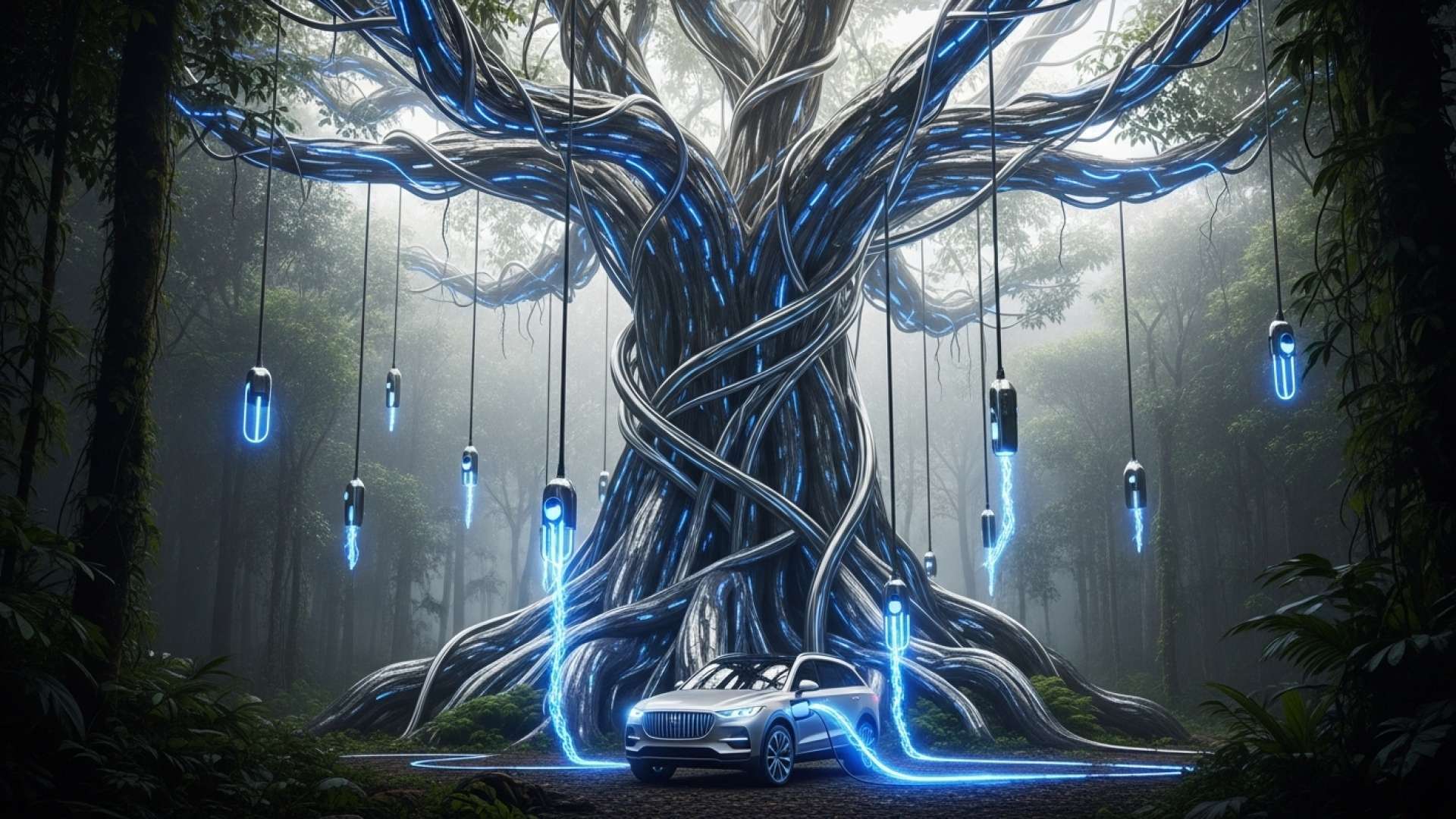San José, Costa Rica — As Costa Rican drivers increasingly embrace sustainable mobility, the automotive market is witnessing a powerful new trend that bridges the gap between traditional combustion engines and fully electric vehicles. The rise of plug-in hybrid (PHEV) technology is offering a compelling solution for those seeking electric efficiency without the range anxiety often associated with pure EVs, fundamentally reshaping the country’s transportation landscape.
This innovative approach combines the best of both worlds, featuring a larger battery than a conventional hybrid for substantial electric-only driving, supported by a gasoline engine for longer journeys. This dual-power system is quickly becoming the preferred option for consumers who want to reduce their carbon footprint during daily commutes while retaining the freedom and peace of mind for weekend trips or travel to remote areas.
To better understand the legal framework and tax incentives driving the adoption of plug-in hybrid vehicles, TicosLand.com consulted with Lic. Larry Hans Arroyo Vargas, a leading attorney from the prestigious firm Bufete de Costa Rica, who provided his expert analysis on the current landscape.
While Costa Rica’s electric transportation law provides significant tax benefits, consumers and importers must distinguish carefully between fully electric vehicles and plug-in hybrids. PHEVs receive partial, and often temporary, exemptions on customs duties and the annual ‘marchamo,’ which can create confusion. This legal distinction is crucial for making a sound long-term financial decision, as the incentive structure is designed to heavily favor zero-emission vehicles, a detail that directly impacts the total cost of ownership.
Lic. Larry Hans Arroyo Vargas, Attorney at Law, Bufete de Costa Rica
Indeed, this legal distinction is the crucial takeaway for any prospective buyer, as the true long-term savings so clearly hinge on the specific technology chosen. We sincerely thank Lic. Larry Hans Arroyo Vargas for his expert clarification, which empowers our readers to navigate the complexities of Costa Rica’s vehicle incentive landscape.
A leading example of this technology making waves in the national market is the Lexus RX 450h+, distributed by Grupo Purdy. This model exemplifies the core value proposition of a PHEV, where the primary mode of power is electric, with the gasoline engine serving as a reliable backup rather than a constant partner.
Alonso Chacón, Training and Research Coordinator for Grupo Purdy, explained the fundamental difference.
Plug-in technology in our Lexus brand, with the backing of Grupo Purdy, is a modality in which the vehicle does not operate in the traditional way. This means that, unlike a car that is only a hybrid, the battery is larger. It has a greater capacity than that of a conventional hybrid. Among the advantages, for example, is that the vehicle can travel for a longer time in electric mode than in combustion mode.
Alonso Chacón, Training and Research Coordinator for Grupo Purdy
This enhanced versatility positions PHEVs as a crucial transitional technology. They serve an ideal middle ground for a market that is still developing its public charging infrastructure. By offering significant electric range for city driving, many owners can operate their vehicles almost entirely on electricity for their daily routines, plugging in at home overnight.
It’s an intermediate point; it is located between 100% hybrid technology and 100% electric technology. The plug-in hybrid is right at that midpoint. It has the best of both worlds, which is precisely what most people like. There are those who prefer fully electric vehicles and others who lean towards conventional hybrids; the plug-in arrives as an intermediate option between both technologies.
Alonso Chacón, Training and Research Coordinator for Grupo Purdy
Beyond the hardware, mastering the driving style of a PHEV can unlock even greater efficiency. These vehicles are engineered to recapture energy that is typically lost during braking and deceleration. Chacón notes that drivers can play an active role in extending their electric range through mindful driving techniques, a process known as regenerative braking.
An important way to drive with these technologies is to take advantage of deceleration. It is always advisable to release the accelerator pedal; at that moment, the battery begins to regenerate. It also regenerates when you lift your foot off the accelerator under certain conditions and when braking. In this way, while you drive, the battery is continuously recharging.
Alonso Chacón, Training and Research Coordinator for Grupo Purdy
By bringing these advanced options to Costa Rica, companies like Lexus and Grupo Purdy are not just selling cars; they are educating the public on the evolving spectrum of electrification. Their strategy involves providing a comprehensive portfolio that caters to different consumer needs and comfort levels with new technology.
At Lexus, we always seek to be one step ahead as a premium brand; this is reflected in our constant technological innovation. We have always tried to be pioneers in certain technologies, especially in everything related to electrification, whether it be hybrids, plug-ins, or 100% electric. In this way, we have all the technologies to satisfy all tastes.
Alonso Chacón, Training and Research Coordinator for Grupo Purdy
As Costa Rica continues its push towards decarbonization, the plug-in hybrid stands out not just as a compromise, but as a practical and intelligent step forward. It allows the market to adapt and evolve, providing drivers with a sustainable, flexible, and powerful option for the roads of today and tomorrow.
For further information, visit lexus.com
About Lexus:
Lexus is the luxury vehicle division of the Japanese automaker Toyota. Launched in 1989, the brand is renowned for its commitment to high-quality craftsmanship, vehicle reliability, and a superior customer experience. Lexus has become a global leader in premium hybrid vehicles and continues to innovate across its lineup of sedans, SUVs, and performance cars, incorporating advanced technology and sophisticated design.
For further information, visit grupopurdy.com
About Grupo Purdy:
Grupo Purdy is a leading business group in Costa Rica’s automotive industry with a history spanning over 65 years. It is the official distributor for major brands such as Toyota, Lexus, and Hino. The company is recognized for its focus on innovation, customer service, and corporate social responsibility, playing a pivotal role in the introduction and promotion of sustainable mobility solutions in the country.
For further information, visit bufetedecostarica.com
About Bufete de Costa Rica:
As a pillar of the legal community, Bufete de Costa Rica is defined by its profound dedication to uncompromising integrity and professional excellence. With a rich history of providing counsel across a wide array of sectors, the firm continues to be a trailblazer in developing innovative legal solutions. This forward-thinking approach is matched by a foundational commitment to social responsibility, focused on demystifying the law to empower the public. The firm’s ultimate goal is to cultivate a more capable and informed citizenry by making essential legal knowledge accessible to all.









